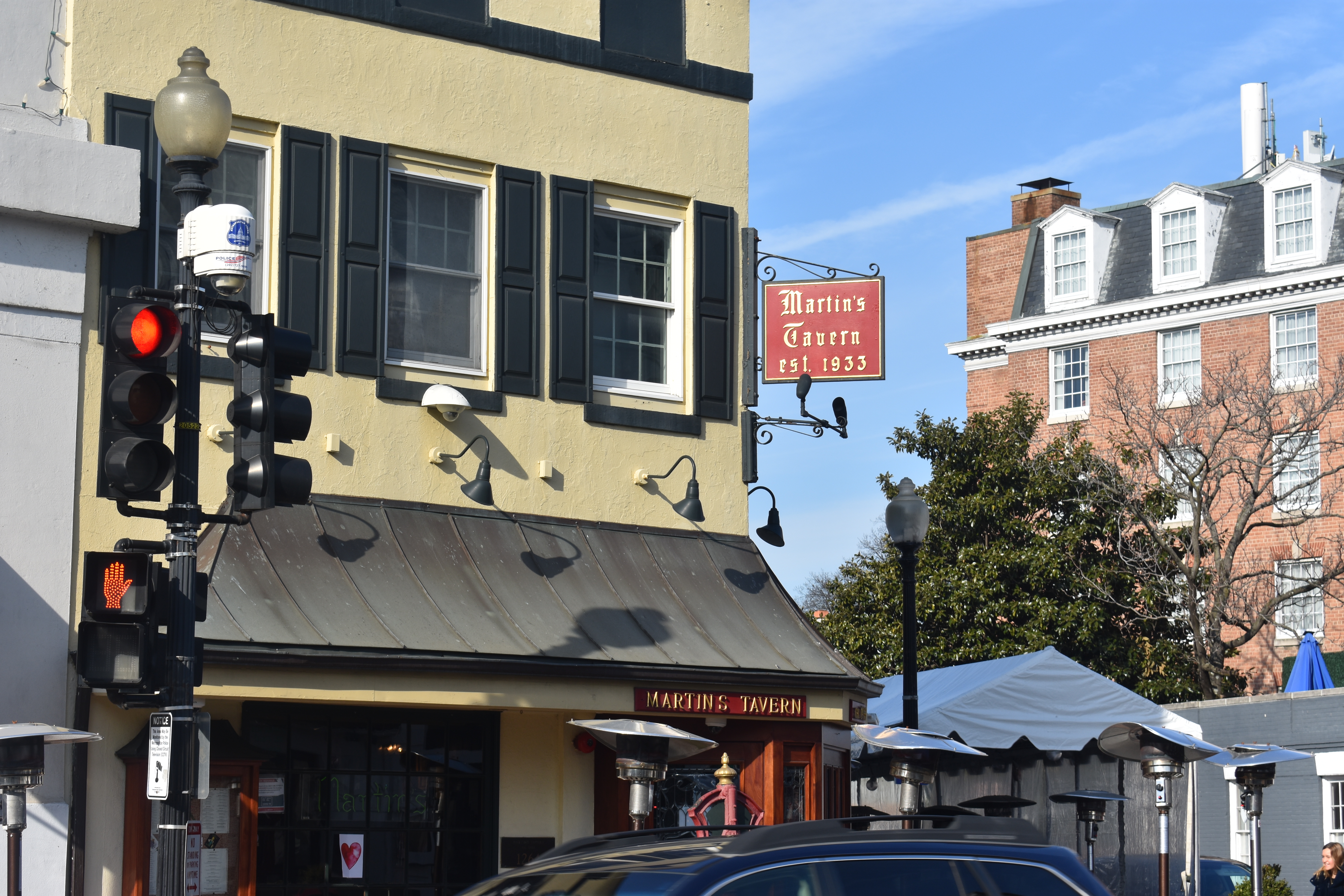After experiencing racial discrimination at Martin’s Tavern in 2021, Kristi Riggs wanted to avoid litigation.
But nearly a year later, after minimal communication from the famous Wisconsin Ave. eatery, both parties entered into a mediation process in the last week of January after Riggs turned to legal routes to ensure justice is served.
Last February, a server and manager abruptly asked Riggs, a Black woman, to stop eating and leave. COVID–19 had forced the business to create an hour-and-a-half dining time limit, but when Riggs was asked to leave, she had not yet exceeded the limit. Nearby white restaurant-goers, however, were not prompted. One of them later noted the discrepancy in their treatment and said their party had stayed much longer. When Riggs walked by nearly two hours later, the party who took her spot was still seated.
To Riggs, it feels like the incident happened yesterday. “I’m still dealing with this, trying to get satisfaction for me, from something that was very traumatic,” she said.
On Feb. 26, shortly after her experience at Martin’s, Riggs wrote about her experience on Facebook, where her post was shared hundreds of times. As local publications picked up the story and community backlash grew, William Martin, the owner of Martin’s Tavern, met with Riggs and her lawyer to work out an agreement.
According to Riggs, William Martin made six promises, including making an annual donation of $2,500 to the United Negro College Fund and partnering with Howard University to create a business management training program. He also committed to firing the two workers involved in the incident, undergoing staff-wide sensitivity training, contracting from three Black-owned businesses, and enlisting the support of other Georgetown businesses in the endeavor.
After their meeting, William Martin took to Facebook to apologize and mentioned proposed solutions but did not discuss details. William Martin’s attorney, Thomas Martin (unrelated to the owner) denied that an agreement on any solution was made.
“The parties were unable to come together on the terms and wording of the joint statement Ms. Riggs requested,” Thomas Martin said in a statement to Washington City Paper.
While Martin’s Tavern has complied with some of Riggs’ proposed solutions—including firing the waitress and manager involved in the incident and conducting staff-wide inclusion training, although not through an organization of Riggs’ choosing—Riggs is not satisfied with the progress.
“For the sake of myself and all of us, I cannot let this go. Change only happens when we hang in there and make it happen,” Riggs said.
With practically four of the six outlined solutions still unmet, Riggs wrote an email to William Martin in March 2021 to check in on updates but never heard back. “I still have not heard a word from him since our initial meeting,” Riggs said.
In early April 2021, Riggs filed an official complaint of racial discrimination against Martin’s Tavern with the Office of Human Rights (OHR).
Now having begun mediation this January, the two will try to reach a mutual solution. If Riggs and Martin cannot agree to a solution, the OHR will investigate to determine if any violations of Riggs’ civil rights occurred.
“I’m hopeful that we can resolve it because I’m ready to move on with my life, but at the same time, I’m never going to let this go, because what happened to me should never happen to anyone,” Riggs said.
While a full investigation takes six months or more, if Martin’s Tavern is found to have violated Riggs’ rights, the OHR will provide the restaurant with a Letter of Determination noting that probable cause has been found. The parties would then undergo conciliation to resolve the dispute, and if that fails, a formal hearing. Legal adjudication may also act as a wider indicator that racist, preferential treatment has consequences, as it would permanently mark the restaurant’s record, according to Riggs.
The restaurant could not be reached for comment regarding agreement to the demands or the OHR mediation.
“I’d like to be optimistic, but at this point, I can’t call it,” Riggs said of the mediations. “Georgetown has a bad reputation for being discriminatory. Black people are the biggest consumer. They depend on us, our money, but they don’t want our respect.”
Georgetown used to be majority Black, but beginning in the 1900s and continuing to today, has faced widespread gentrification, leaving the area only 13 percent Black in 2021. In a now predominantly white neighborhood in the middle of the fondly dubbed “Chocolate City,” Riggs’ mistreatment is just the latest in a history of racial discrimination from Georgetown businesses against Black clients.
Following increased coverage of her story and inaccurate, biased reporting from right-wing publications like the Federalist, Riggs began to receive hate mail. “To have all these random strangers, these hateful, racist people reach out to me was very frightening,” Riggs said.
Despite backlash, others have joined Riggs’ push for justice. The Philodemic Society, Georgetown’s oldest secular student organization, terminated its ties with the restaurant, ending the long-time tradition of eating at Martin’s Tavern after weekly debates.
“We decided to use what little power we had,” said Isabel Janovsky (COL ’23), who served as the membership secretary when organization leaders Aida Ross (SFS ’22) and Nile Blass (COL ’22) decided to sever ties. “A lot of people viewed [visiting Martin’s] as an integral tradition, but you can create other traditions without necessarily compromising your values.”
Support also came from outside the Georgetown community. Rev. Jesse L. Jackson—civil rights activist, former D.C. shadow senator, and founder of the Rainbow PUSH coalition—joined Riggs’ demand for accountability in a letter penned to Martin on Jan. 17.
“Ms. Riggs had the option to pursue a legal remedy, but rather chose a mutually satisfactory civic and morally sound solution,” Jackson wrote. “Fully implementing this plan can have a huge impact on the broader business community.”
Riggs has posted on Facebook asking for others to follow the Reverend’s suit and send letters to Martin. “I am not letting him off the hook. I will not just move on. I intend on pursuing this to the end,” Riggs wrote.





It sounds like Billy Martin is doing more than he has to.